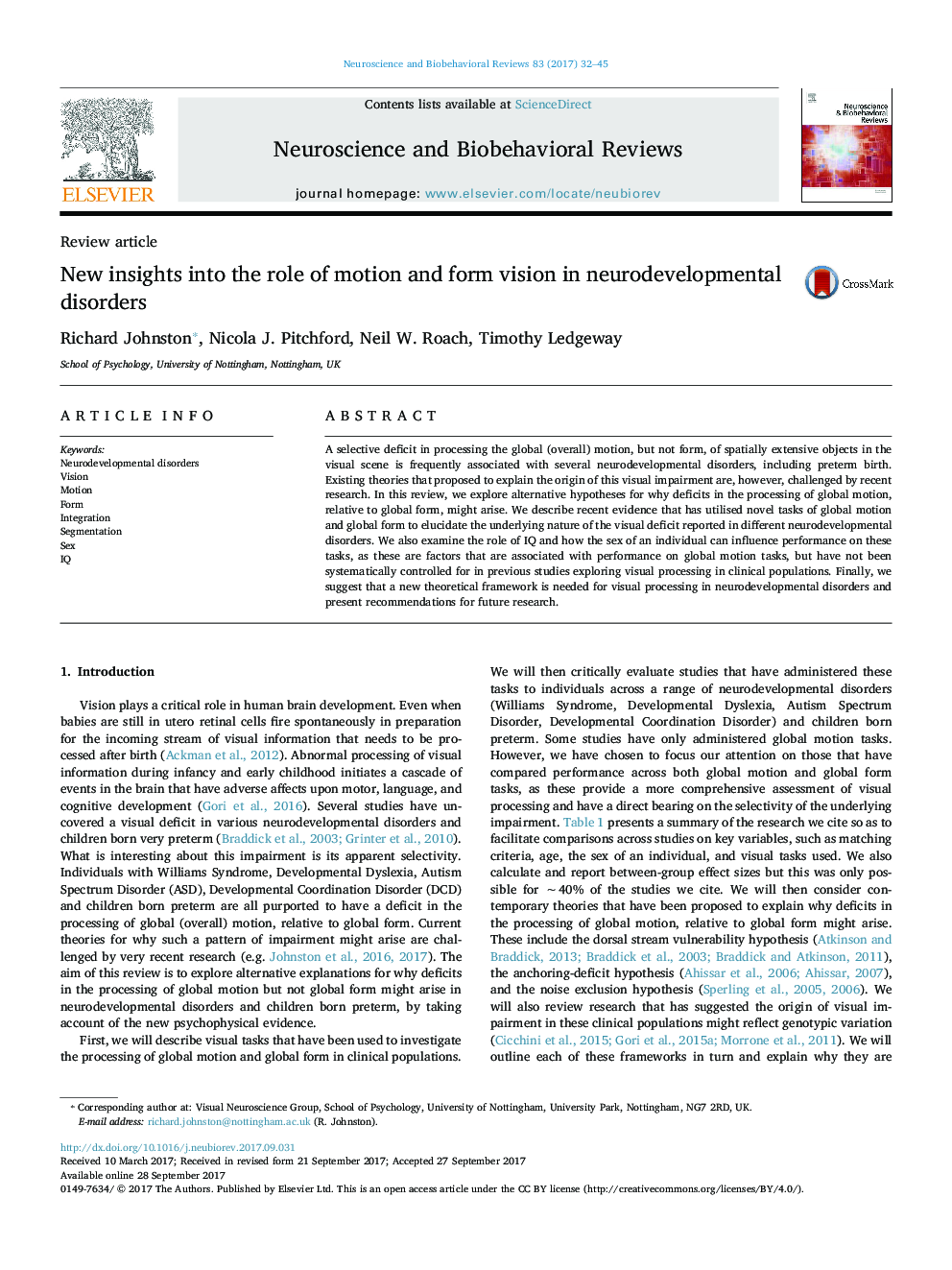| Article ID | Journal | Published Year | Pages | File Type |
|---|---|---|---|---|
| 5043415 | Neuroscience & Biobehavioral Reviews | 2017 | 14 Pages |
â¢A deficit perceiving global motion but not form arises in several clinical groups.â¢Theories explaining this impairment are seriously challenged by recent research.â¢New types of tasks have revealed the nature of the visual deficit in dyslexia.â¢Sex and non-verbal IQ are strongly associated with performance on motion tasks.â¢A new theory of visual processing in neurodevelopmental disorders is needed.
A selective deficit in processing the global (overall) motion, but not form, of spatially extensive objects in the visual scene is frequently associated with several neurodevelopmental disorders, including preterm birth. Existing theories that proposed to explain the origin of this visual impairment are, however, challenged by recent research. In this review, we explore alternative hypotheses for why deficits in the processing of global motion, relative to global form, might arise. We describe recent evidence that has utilised novel tasks of global motion and global form to elucidate the underlying nature of the visual deficit reported in different neurodevelopmental disorders. We also examine the role of IQ and how the sex of an individual can influence performance on these tasks, as these are factors that are associated with performance on global motion tasks, but have not been systematically controlled for in previous studies exploring visual processing in clinical populations. Finally, we suggest that a new theoretical framework is needed for visual processing in neurodevelopmental disorders and present recommendations for future research.
